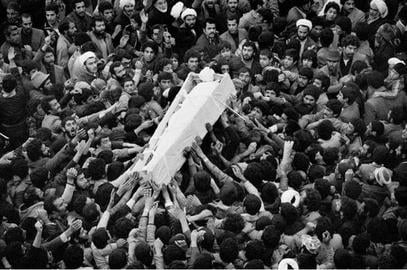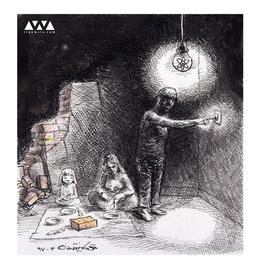In 2017, as populist leaders gained strength in Eastern Europe, Turkey and America, two important works on authoritarianism came out — one a serious book, the other a blackly comic film.
On Tyranny — Twenty Lessons from the 20th Century was published in the US by the Yale historian Timothy Snyder. Shortly afterward, the director Armando Iannucci released his satirical film The Death of Stalin.
In On Tyranny, Snyder issues 20 succinct and deeply serious warnings to citizens of democracies. For example, he reminds us of the danger of creeping surveillance, and zeroes in on the way tyrannical politicians twist language to distort the truth (President Trump’s fake news).
There are two separate Persian translations of On Tyranny available in Tehran, but considering that there are 80 million Iranians, only a tiny fraction of the population will read this excellent little (126 pages) book. How many of them will be absorbing Snyder’s pointed lessons?
Instead I fear that some Iranian readers will enjoy a feeling of schadenfreude, taking pleasure in the US’s current malaise, and the fact that an eminent professor is warning Americans that their democracy is in peril.
“Just like us,” they will think. “We have demagogic politicians like Ahmadinejad and Rouhani. The Americans have Trump.”
But of course, it’s not like us at all.
America is still a functioning democracy. Iran is not. Here, civil society is severely curtailed. Dissent is restricted. No one — from teachers’ unions to religious minorities — enjoy freedom of speech or assembly. There is no tradition of multi-party politics. No institutions whose role it is to fight for human rights and social justice.
And a frightening number of Iranians remain ready to support demagogues and tyrants in office — as long as they are THEIR demagogues and tyrants.
During the protests that swept through more than 80 towns and cities in December 2017, some demonstrators demanded “a good dictator” to run Iran. And in Mashhad, that bastion of hardliners and conservatives, crowds shouted “Reza Shah — may God make your soul happy.”
And of course reformist apologists continue to insist — in the face of all evidence to the contrary — that the theocracy is really humane and well-intentioned.
As for the movie The Death Of Stalin, even though pirated copies are available here in Iran very cheaply, the movie hasn’t received a lot of attention.
That’s a shame, firstly because the movie is darkly hilarious. There’s a brilliant scene of Stalin stretched out unconscious on the floor after a massive stroke, while his still-terrified Politburo underlings try not to kneel in a spreading pool of his urine.
But through comedy, Ianucci explores the mechanism of state tyranny and terror in ways that should resonate with Iranians. Who here would not make the connection between the Soviet secret police arresting “traitors” in the middle of the night in their pajamas and similar summary arrests in Iran?
Who could miss the parallels between the hysterical public reaction to the news of Stalin’s death, and the frenzied crowds who turned out for the funeral of Ayatollah Khomeini?
In both cases, millions of people paid mindless homage to leaders guilty of monstrous abuse.
The willful blindness of so-called reformers here to that abuse never ceases to amaze me. A few years ago I was granted an interview with Ayatollah Yousef Sanei in Qom. (It’s worth watching Maziar Bahari’s remarkable documentary about him, Online Ayatollah, which is available on YouTube).
I asked for his assessment of Ayatollah Khomeini's legacy.
He cleared his throat and, with a straight face, said, “His Eminence was the most democratic leader in the world.”
“Why do you say that?” I asked.
“Well,” he responded. “When His Eminence returned from exile, three million people welcomed Him at the airport and when he died, nine million took part in his funeral.”
I would recommend Ayatollah Sanei watch The Death of Stalin, but something tells me he just wouldn’t get it.
visit the accountability section
In this section of Iran Wire, you can contact the officials and launch your campaign for various problems




















comments